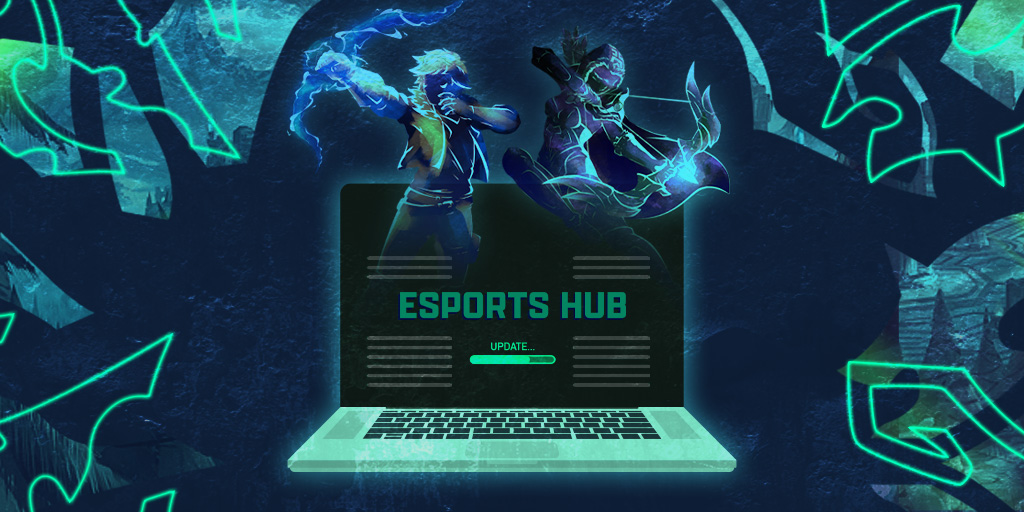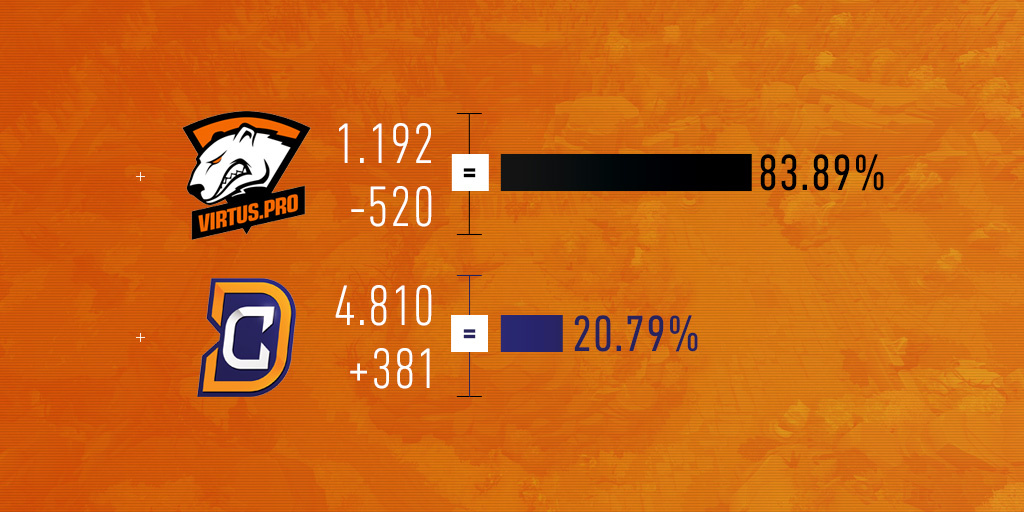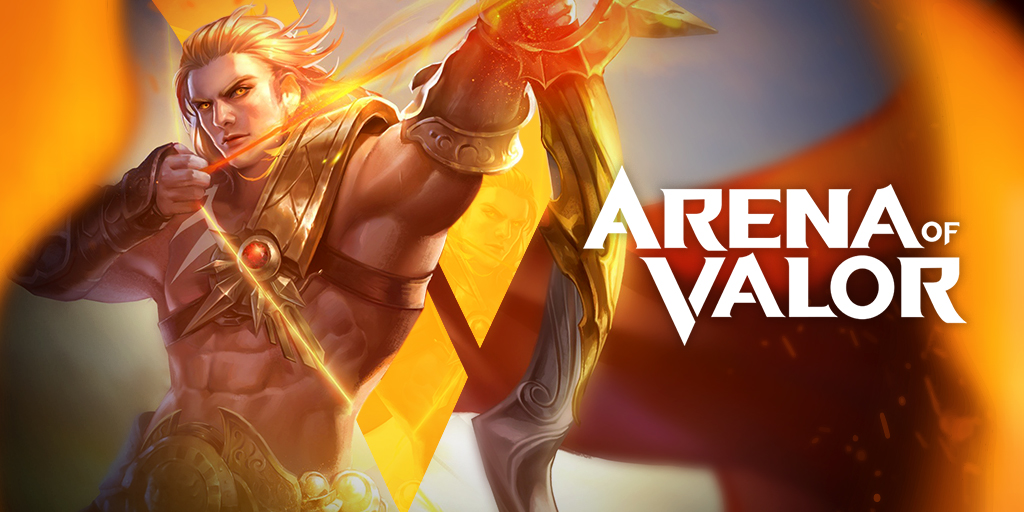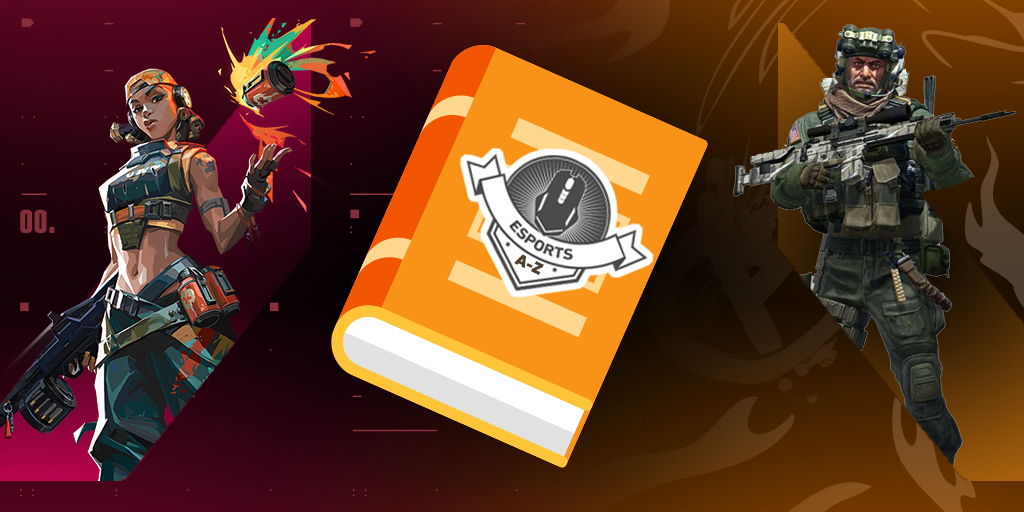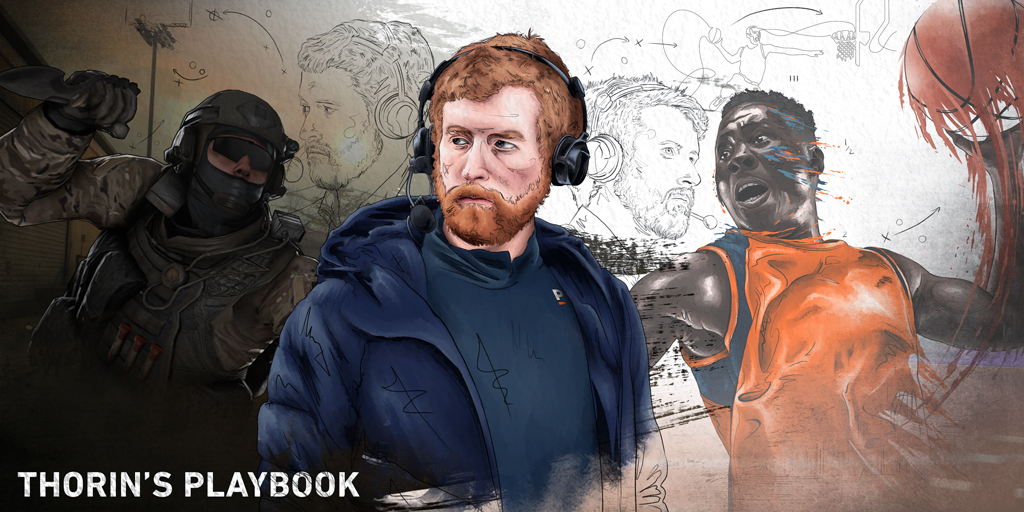Esports is one of the fastest-growing industries in the world and has brought with it a range of new terms. In this glossary, we cover some of the most commonly used terms in esports, identify the different game genres in esports and list some of the most popular esports titles.
A brief history of esports
Tracing its origin back to Spacewar! (1962), the first widely-recognized and referenced esports event took place at Stanford University in 1972, with 24 players competing for a subscription to Rolling Stone magazine.
Esports began to enter the mainstream in the 1990s with Street Fighter, Quake, Counter-Strike and StarCraft becoming the staple for LAN (Local Area Network) competitions across North America, Europe and Asia.
StarCraft, in particular, gained massive popularity in South Korea, becoming the first esports title to have a dedicated ecosystem that broadcast the game’s competitions on South Korean TV.
The top three most popular esports titles as of 2021 are League of Legends, Counter-Strike: Global Offensive (CS:GO) and DOTA 2.
Take a deep dive into MOBA and FPS terms
In esports, Multiplayer Online Battle Arena (MOBA) and First-Person Shooter (FPS) are the two genres in which you’ll find the most popular esports titles. If you would like to discover terms that are unique to the MOBA or FPS genres, find our glossary of terms for both here:
- Glossary of terms for First-Person Shooter (FPS)
- Glossary of terms for Multiplayer Online Battle Arena (MOBA)
General esports terms
Aggro
Usually refers to implementing an aggressive style of play in order to put pressure on the opponent. It can also refer to the level of aggression displayed by computer-controlled NPCs when attacking player characters.
Avatar
The character that each player selects and controls in a game.
Backdoor
A method of sneaking around or behind an opponent without them realizing until it is mostly too late (e.g. if the opponents are occupied elsewhere).
Bait
A player feigning weakness or sacrificing themselves in order to lure an opponent into a situation in which the feigning player (and their team) can then overpower and kill the opponent.
Best-of-X
The maximum amount of games to be played in a match. Matches are usually played as best-of-three or best-of-five games and the team who wins the most games (2/3 or 3/5) are the winners of the match.
Bots
Computer-controlled players which real-life players can play against in games. They offer good practice for players ahead of competitions.
Bracket
A tree-shaped diagram that represents the format followed by an esports tournament. Different tournaments follow different bracket formations.
Buff
A spell, ability or effect that results in a positive increase in a character’s power. Buffs can be obtained temporarily mid-game or are permanently made as part of an upgrade by the game’s developer.
Carry
A player whose character can deal a large amount of damage to opponents or who plays a key role in the team's success.
Circle
The currently active area of play in a Battle Royale game. The circle is often surrounded by a type of gas or an area that can be deadly upon prolonged exposure. The size of the circle gets smaller as the game progresses, bringing all players’ characters closer together.
Circuit
The word used to describe all the events for an esports title that take place each year.
Clutch
A player’s ability to perform well under extreme pressure or in an important part of a match, and the ability to win when winning previously seemed impossible.
Composition (Comp)
The group of in-game characters selected for a match and the formation/strategy employed by the team with those characters.
Console
The piece of technological equipment used to play esports games that’s not a computer (e.g. a Playstation).
Double Elimination
When two brackets (upper and lower) are used in a tournament. In the upper bracket, teams play against each other until there is a single winning team at the end. If a team loses a match in the upper bracket they will drop to the lower bracket, where they get a second chance by playing another team. If they win this match, they can progress through the bracket. However, if they lose this game too, they will be eliminated from the tournament.
Early Game
The early stages of a round/game within a match. In some games, the early game ends at a specific time or after a specific move.
Economy
The finances of a team and their ability to purchase items or weapons.
Esports
Video games played competitively (through one-off tournaments and leagues) by professional gamers (either as individuals or teams) in front of spectators and for prize money.
Flank
Coming up on the enemy from behind and/or the sides to gain an advantage over them when attacking.Forfeit
Giving up or conceding defeat within a specific game or battle, or even an entire match.
Heads-up Display (HUD)
The on-screen display that shows essential information about the player’s character and the game (e.g. character’s health, time left, weapons list, game progression, character abilities or a mini-map of the surrounding area).
Hit Points (HP)
The ‘health’ of a character. Every player’s character begins with 100% HP and every time they are hit their points go down. Once all of their hit points have been depleted, the character dies.
IEM Intel Extreme Masters
A series of international esports tournaments held across the world. It is the longest-running global pro gaming tour in the world. It features tournaments for games such as CS:GO and StarCraft II.
In-Game Leader
The player who is responsible for deciding team tactics in the game and who issues instructions to other team members to follow.
Killstreak
Making successive kills in the game without dying. Killstreaks are often rewarded with extra powers or in-game currency.
Ladders
The online ranking of players’ performance in a video game. If a player is ‘climbing the ladder’ it means they are moving higher up the rankings.
LAN
Abbreviation for Local Area Network. Many esports tournaments are held via LAN and not online. In LAN tournaments, all players are located in the same place (an arena) and their computers are all hooked up to the same network.
Late Game
The later stages of a game within a match. In some games, the late game begins at a specific time or after a specific move.
Line of Sight (LOS)
What a player is able to see on the map. If something is ‘out of LOS’ it means that it is obstructed and can’t be seen.
Level up
Moving up to a higher level of the game and being rewarded with extra powers, abilities, strength and/or weapons. Players need to complete tasks within the game and acquire XP or gold to help them level up.
Map
The settings for esports games, where the action takes place. Can be thought of like a pitch in traditional sports. Many games have multiple maps on which the game can be played. Maps differ in style and layout and require different strategies to win.
Map Pool
The group of maps that a specific tournament will use. Can also refer to the maps a team has practised on.
Meta
Short for Metagame – the most effective styles of play, strategies, character choices, or team compositions for playing and winning a game at the highest level.
Mid Game
The middle stages of a round/game within a match. In some games, the mid game begins and ends at a specific time or after a specific move.
Nerf
When a character or item (e.g. a weapon) is purposely weakened by the game developers in a game update. It is the opposite of a buff.
NPC
Abbreviation of non-player character - characters that are controlled by the computer and not by players playing the game. They can interact with and often assist players’ characters throughout the game.
Offline Event
An esports event that takes place in an arena or theater, with all players present and connected to the game via a LAN network.
Online Event
An esports event that takes place remotely, with players connecting to the game via the internet from different locations around the world.
Overpowered (OP)
A character, weapon or ability in a game that is considered by many to be too powerful and in need of nerfing (being weakened by the game developer).
Pick and Ban
The period before the match where both teams decide which characters/heroes/champions/maps they would like to play and which they want to ban from the game so the opposing team cannot pick them.
Perk
The unique characteristics (abilities and powers) of a character within a game.
Playoffs
Type of competition played after the end of a league’s regular season or after the group stages of a standalone tournament to determine the league/tournament champion.
Prize Pool
The total amount of money that is distributed across all winners in a tournament. The majority of the prize pool amount will go to the winning team but teams that come second, third or lower may also receive a prize.
Player vs. Player (PvP)
A game in which players compete against other players. Opposite of Player vs. Computer.
Random Number Generator (RNG)
A programming algorithm built into some games that generates random numbers for variables within the game. For example, certain events happening (like finding a rare item) or for determining how abilities or weapons affect opponents’ characters.
Regular Season
The main scheduled league competition for an esport in a specific region (e.g. North America). During the regular season, all teams in the league will play a group tournament. At the end of the regular season, the top teams will then enter the playoffs to find the outright winner. In most esports, there are two regular seasons per year – Spring and Summer.
Respawn
When a character reappears in the game after having been killed.
Roster
The line-up of players that a team will be fielding for a season or for a particular event.
Rush
When a player/team attacks the other player/team quickly and causes as much damage as possible before the opposing player/team can react and defend themselves.
Skillshot
Casting an ability with precise aim and timing to hit an enemy. Because of the skill involved in hitting a skillshot, a player who has a high skillshot rate is seen as a very good player.
Skins
In-game cosmetic items that can be purchased by the player and used to change the appearance of a character or their weapons. They are purely aesthetic and do not affect a character/weapon’s performance in the game. Some skins are very rare and can be very valuable, and some players/esports followers use them as currency for gambling on games.
Spam
When a player repeatedly uses the same action or item against an opponent.
Spawn
The entrance of a player (or weapon/item) into the game arena/map at the beginning of a game.
Split
A specific part of the overall season. A full season (year) is usually divided into two ‘splits’ – Spring and Summer (each of which contains a regular season and playoffs, plus an outright champion).
Stack/Stacking
When a group of players work together to attack the opposing team or to defend a base.
Streamer
A streamer is someone that plays games and shares their screen online so others can view them playing. Popular streaming platforms include Twitch, Facebook and YouTube.
Support
A role/position of a player in an esport team that plays characters, or in a style, that helps teammates.
Tank
A tough and resilient character who can take a lot of damage. The character is used to lead attacks and to also shield other team members from attacking forces.
Twitch
A popular live-streaming platform that gamers use to watch and broadcast esports competitions.
Ultimate
A character’s most powerful ability. When used at the right time, it could help win the game for a team.
Vision
How much a character (and the player controlling it) can see.
XP (Experience Points)
Mostly used in RPG, MOBA and MMORPG-style games, XP are points that are scored upon completing certain actions throughout the game (e.g. killing creeps/minions). Hitting certain XP levels allows a player’s character to level up (gain new abilities, powers or weapons).
Zoning
A tactical move that forces the opposing players into a particular area where they cannot escape or that is advantageous to you to get the kill.
Game types
Battle Royale (BR)
A type of online multiplayer game in which a large number of players compete. The objective is to eliminate all other opponents to become the last player (or team) standing.
Fighting Games
Video games involving close combat over a number of rounds. Characters physically fight each other until their opponent has been defeated or time runs out. Popular titles in this genre include Tekken and Mortal Kombat.
First-Person Shooter (FPS)
Combat video games that are played from the viewpoint of the character the players are controlling (first-person perspective). Examples include Counter-Strike: Global Offensive, VALORANT and Rainbow Six: Siege.
Massively Multiplayer Online Game (MMO)
An online game with hundreds or even thousands of players, who can compete against each other and interact with each other.
Massively Multiplayer Online Role-Playing Game (MMORPG)
An online role-playing style video game with hundreds or even thousands of players who can compete against and interact with each other. Each player controls a character who has to undertake a quest within the game world. The games are based in a world that continues to evolve and be developed. Popular MMORPG titles include World of Warcraft and EverQuest.
Multiplayer Online Battle Arena (MOBA)
An online strategy-based video game in which two teams of players compete against each other on a battlefield (map). The objective for each team is to destroy the other’s main structure/base before theirs is destroyed. Each player controls a character with its own unique abilities. Popular MOBA titles include League of Legends and Dota 2.
Online Collectible Card Games (OCCG)
Much like traditional Collectible Card Games, players collect and trade cards online. They then do battle with each other using their cards with the aim of reducing their opponent’s health points to zero before their own is depleted.
Real-Time Strategy (RTS)
An online video game genre in which players control entire armies of characters, rather than just one character. The games are also viewed from a birds-eye perspective, rather than from a first-person perspective. All players make strategic moves at the same time, rather than taking turns to make moves.
Role-Playing Game (RPG)
A game in which players choose a character and undertake a quest within the game world. RPGs can be played in real life (much like a board game) or can be played online. Examples include Dungeons and Dragons and World of Warcraft.
Game Names
Call of Duty
A first-person shooter (FPS) game first published by Activision in 2003, but with many sequels released since. The game is set in a warzone with players controlling a character that works with other players or computer-controlled characters to complete missions.
Counter-Strike: Global Offensive (CS:GO)
A multiplayer first-person shooter game released by Valve in 2012. Two teams - Terrorists and Counter-Terrorists - play against each other across different objective-based game modes. Matches have 30 rounds and at the end of each round, players are rewarded for good performance with in-game money to spend on weapons in future rounds.
Defense of the Ancients (Dota 2)
A MOBA game published by Valve in 2013. There are two teams of five players, and each team’s objective is to destroy the other’s Ancient (located in their base). Each player chooses and controls a ‘hero’, and throughout the game, they work to level up by collecting XP and gold.
Hearthstone
An online collectable card game, created by Blizzard Entertainment. There are two players in the game and each player has a hero with a unique power. The goal is to reduce the health of the other player’s hero to zero by taking it in turns to play a card (either a minion, spell, weapon, or hero card) from their deck.
King of Glory
A MOBA mobile game released by Tencent in 2015. Two teams play against each other with the ultimate objective of destroying the other team’s base (Core Building) before the other team destroys theirs. During the game, players work to level up their characters by killing NPC characters and taking out enemy structures.
League of Legends (LoL)
A MOBA game, published by Riot Games in 2009. There are two teams of five players and they battle each other over different maps, with the ultimate objective of destroying the other team’s Nexus before they defeat theirs. Each player chooses a champion to play as and during the game champions collect gold and XP in order to level up.
Overwatch
An online multiplayer, first-person shooter game published by Blizzard Entertainment in 2016. There are two teams of six players who work to complete map-specific, combat-based objectives across a number of game modes (maps). Each player chooses from a selection of heroes (each of which has its own unique abilities) to play as.
PlayerUnknown’s Battlegrounds (PUBG)
An online multiplayer battle royale game published by PUBG Corporation. In the game, up to 100 players compete (either individually or in groups of up to four) in a last-man-standing battle across one of four maps. Players begin with no tools or weapons and have to search the map for items that will help them survive and ultimately win.
Rainbow Six: Siege (R6)
An online FPS game, first published by Ubisoft in 2015. Players choose a character from either the attacking or defending side and work towards outsmarting the opposing team and completing their in-game objective, which can include defusing a bomb or rescuing hostages.
Rocket League (RL)
A soccer-themed video game, first published by Psyonix in 2015. The big difference between this game and most other soccer-themed games is that players control rocket-powered cars instead of animated human footballers. Teams of eight players use the cars to hit the ball into the opposing team’s goal. The team with the highest score at the end of the match wins.
StarCraft II
An RTS game published by Blizzard Entertainment. Players can choose from three forces: Terran, Zerg, and Protoss. The player’s objective of the game is to eliminate the enemy’s structures and units using their chosen fighting force.
StarCraft Brood War
An RTS game published by Blizzard Entertainment and Saffire. It is an expansion of the original Starcraft game and set before the Starcraft sequel, Starcraft 2. The player has to pick a force (either Terran, Zerg or Protoss) and then has to work to construct a base, increase their military resources and ultimately eliminate their opponent’s base.
VALORANT (VAL)
A team-based FPS game published by Riot Games in 2020. Teams are assigned as either the attacking or defending side, with each player taking control over an agent, each of which has unique abilities. The attacking team’s objective is to plant and detonate the Spike (bomb), while the defending team’s objective is to prevent this from happening.
Warcraft 3
A fantasy-themed RTS game published by Blizzard Entertainment in 2002. It can be played in single-player or multiplayer mode. The player chooses a faction (Human, Orcs, Night Elves or the Undead) to control, and the objective is to train that faction and collect resources in order to undertake missions and ultimately defeat the enemy.
World of Tanks
An MMO game published by Wargaming. A player chooses an armored tank to control (movement and firing) on the map. Their objective is to eliminate all other opposing vehicles or capture the opposing team's base.


